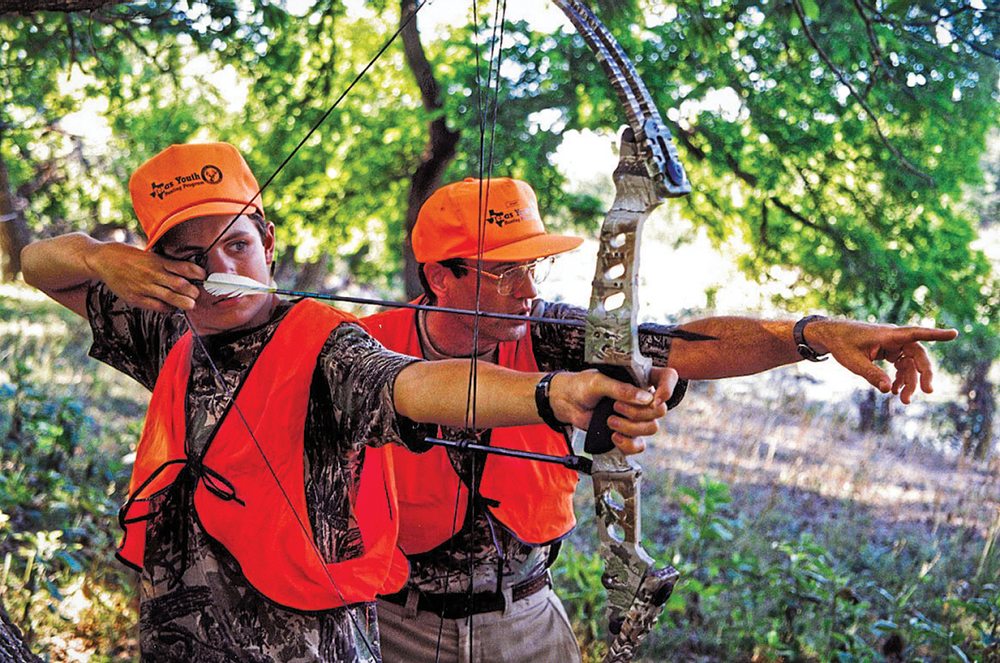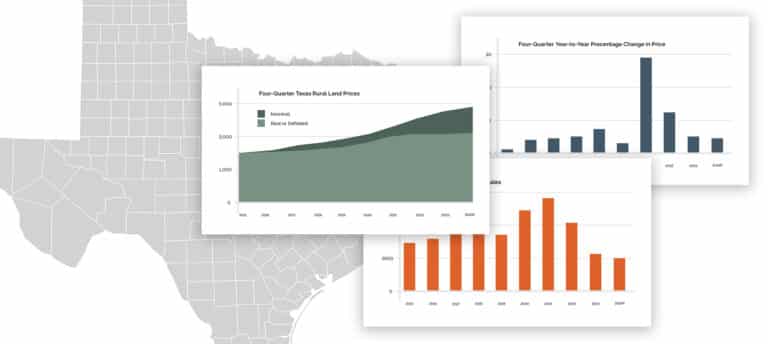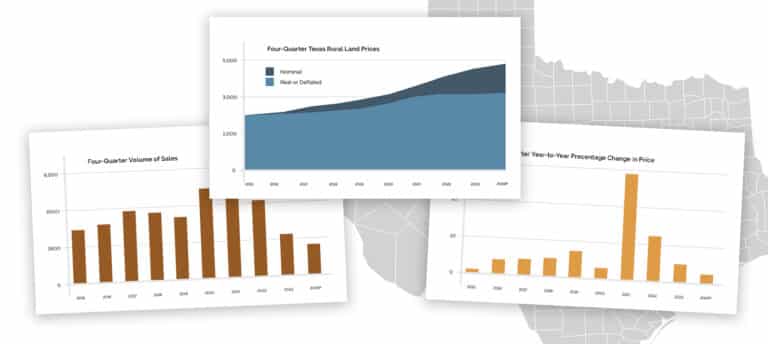
The Texas Youth Hunting Program (TYHP) is a multi-faceted outdoor experience designed to produce the next generation of safe, educated, ethical hunters.
“TYHP’s staff and volunteers are dedicated to creating young hunters who are safer, better educated and more ethical than those reached by any other program out there,” Jerry Warden, who recently retired as TYHP’s Director after 17 years of service, said. “We want the young people completing our program to be the type of hunters we want representing our tradition in the future.”
When Warden joined TYHP in 1997, the organization hosted two hunts the year prior. During the 2013-14 season, the volunteer-based effort, which is a partnership between the Texas Parks and Wildlife Department and the Texas Wildlife Association (TWA), hosted 226 hunts reaching almost 1,600 young people, ages 9-17, and 1,600 of their parents, guardians or mentors. The program is built on a foundation of 1,400 volunteers. Each year 150-200 landowners open their ranch gates and allow these newcomers to experience the grandeur of nature on Texas’ private lands.
“In the beginning, the program was all about the hunt, but it didn’t take long to realize that the hunt is the vehicle to get people outdoors – education is what it is all about,” Warden said.
A typical TYHP weekend
Hunts begin on Friday evening when the hunters and their accompanying adults arrive. The hunters check-in, settle in and begin getting acquainted with volunteers and one another. Upon arrival every youth hunter is required to show a hunting license, proof of hunter education and marksmanship proficiency. The evening’s primary focus is a pre-hunt orientation where hunter safety is reviewed and ranch rules are introduced by the landowner or the Huntmaster.
Although excitement prevents many hunters from going to sleep, the next day starts early with guides, hunters and parents in the blinds. After a morning hunt, the participants return to camp to process any game. Then, they enjoy a big, late morning breakfast before heading to the rifle range to ensure that everyone’s firearm is firing true and to test marksmanship proficiency. For safety and ethical reasons, any hunters who deemed “not proficient” by the Range Master will be a nature photographer or a nature observer or remain at the range until they demonstrate an ability to place three consecutive shots in the vital zone on a target.
Lunch and a full afternoon of outdoor education are next on the agenda. Then, the hunters and their companions return to the field until the last legal light fades. Back in camp, the hunters process any game and then prepare for dinner. The night culminates in a campfire talk-around that is, for many, the weekend’s highlight. Lights go out and very few people have trouble sleeping.
Sunday starts before daybreak with the hunting teams heading back to the blinds. Mid-morning everyone returns, once again processing game before anything else. Everyone enjoys a final breakfast before pitching in to break camp and prepare for the trip home. A group picture captures the memories for everyone and prompts a final hurried exchange of phone numbers and emails.
Education
“Much to the dismay of the tired parents, there is no napping on TYHP hunts,” said Virginia Roberts, who got involved with the program as a 15-year-old hunter and became a Huntmaster when she turned 18. She is now 22. Last year, she assisted with or led nine hunts.
“There’s just way too much to learn and do in the outdoors to be sitting still, unless you’re in a blind,” she said.
Huntmasters are responsible for planning the outdoor education activities on their hunts. The activities vary depending on the attributes of the ranch and the local area. A sampling of past activities includes: an overview of game laws taught by a game warden; the basics of biology from a wildlife biologist’s perspective; blackpowder shooting; knife sharpening and safety; a hunter’s skills trail; camping basics; angling; and astronomy. One host ranch near Brady is home to the geographic center of Texas, so the hunters always take a hike to the marker identifying that location. In South Texas, groups have toured the King Ranch Museum.
“I just love introducing people to nature and to each other,” she said. “TYHP brings together a lot of great people who are students of the outdoors, meaning that they never stop learning.”
Roberts, who is interested in a career in natural resource policy, credits TYHP to opening many doors.
“As a young hunter, the program raised my awareness of leadership opportunities like the Texas Brigades, that have allowed me to gain valuable experience and create a network of supporters,” she said. “From my perspective, the hunting is wonderful, but it’s icing on the education and opportunity cake.”
Safety
“Safety is first and foremost,” said Kathy Glass of San Angelo, who in addition to being a Huntmaster and TYHP Area Coordinator for West Texas is also a Hunter Education instructor who has been teaching riflery and shotgunning to young people for 27 years. “Everything we do revolves around safety,” she said.
In addition to ensuring accurate marksmanship, TYHP anticipates potential problems and has procedures in place to minimize potential accidents. For instance, according to Glass, if a hunter arrives at camp with a soft-sided gun case, it is temporarily replaced with a hard-sided case that can be locked to prevent impulsive access. Each firearm is locked up except at check-in, on the rifle range and in the blinds. During those times, the ammunition is kept separate from the firearm.
When young hunters and their adults are in the blind, only one round is allowed to in the chamber. The parent or guardian is responsible for distributing a single replacement cartridge after a shot is fired. Before any shot is fired, all participants in the blind must agree that the shot should be taken. (The decision of whether or not to harvest an animal rests solely with the youth hunter.)
The attention to details pays big dividends. Since its inception, the TYHP has conducted more than 2,000 hunts involving 20,000 young people without a serious incident.
Ethics, respect and responsibility
By definition, ethics are the moral responsibility that govern a person’s or a group’s behavior. In hunting, ethics encompass a wide range of issues ranging from fair chase to a hunter’s observance of game laws and property boundaries to the way that animals are harvested and the meat is processed, so it is not wasted.
Tom Vandivier, an Austin attorney, who is a TWA Director and owner of Llano Springs Ranch near Junction, said, “As fewer people understand the traditions of hunting, the more important that ethics become. Widespread ethical behavior is an imperative component of preserving our hunting heritage.”
TYHP, in addition to tackling the thorny and personal issue of ethics, through discussions and reality-based scenarios, also works to generate respect for the land and engender responsibility.
For instance, the program’s motto is to “leave a ranch cleaner than we found it.” To that end, everyone who comes on a hunt stays for the entire three days. No one is allowed to leave early, because everyone must lend a hand. First, the camp is cleaned. Then, the TYHP gear is disassembled and packed. Finally, the personal gear is packed. No one leaves the ranch until everyone is ready to go.
Each hunter is also required to write a thank you note to the hosting landowner. In this world of instant communication, it is a seemingly old-fashioned courtesy that makes the youth consider the gift that they’ve been given.
Warden said, “Gratitude is an important attribute to cultivate because hunting is a privilege.”
Landowner participation
“From a landowner’s perspective, it’s simple and safe,” said Vandivier, whose ranch has been the site of eight youth hunts. “Not only would I recommend it to other landowners, I have.”
At Llano Springs, the youth hunters help control surplus populations of animals and, at various times, have harvested feral hogs, white-tailed spikes as well as axis and white-tailed does. (TYHP conducts hunts for dove, turkey, waterfowl and any other species that a landowner might allow.)
According to Vandivier, the Huntmaster did all of the preparatory work. The program provided volunteers, food and made safety imperative, which was vital to him because we live in a “liability-seeking world.” The TYHP is insured under theTWA’s general liability program.
Ranches are asked to provide lodging. If lodging isn’t available the participants camp out.
While TYHP can provide guides, Vandivier chose to use his own staff and friends because they “know the ranch and we want to be part of weekend.”
“In my experience, the participants have been appreciative, courteous, and respectful of my property and my wishes,” he said. Litter or damaged property has never been an issue.
He appreciates the opportunity to share his game management philosophy with people who may not have ties to the land.
“After I tell them what we do and why we do it, I think the participants leave the ranch with a greater understanding of why removing surplus game is important for the habitat and the environment,” Vandivier said. “They know that hunting is a valuable way to help keep things in a necessary balance.”
This understanding may be the most pivotal and important piece of knowledge the young hunters gain during a weekend chockfull of learning, Warden said.
Benefits
TYHP offers two categories of benefits: the tangible and the intangible. For landowners, the most obvious tangible benefit is the control of excess animals. The young hunters help harvest surplus animals, allowing ranches to achieve their wildlife management goals.
While this is an important benefit, the staff, volunteers and landowners agree that the intangibles are what keep them coming back.
“As a landowner, it is gratifying to see youngsters and their parents in the great outdoors, uninterrupted by technology and demands, getting closer to one another and getting closer to nature,” Vandivier said.
Around the campfire on Saturday night, many young hunters say spending time with their parents is the weekend’s high point, and for some it is the first time that they’ve ever had experienced extended one-on-one time, Warden said.
Glass has enjoyed watching the changes of heart that come with education and experience. Her favorite memory from a TYHP weekend involves a mother who came only because no one else could accompany her daughter. As the mother registered on Friday evening, she said, “I am a healer, not a killer. I wouldn’t be here if there was anyone else at all who could’ve come.” At Saturday night’s campfire, after one day afield, she said, “I’ve learned so much. While I will never kill anything personally, I will be here to support my daughter every time because this program benefits wildlife.”
Roberts appreciates the power of relationships formed in the outdoors and the knowledge that is transferred along the way.
“Our participants arrive, saying, ‘I don’t know very much,’ and we volunteers tell them, ‘That’s okay. That’s what we’re here for.’ Then we teach them,” she said. “People come to these hunts as strangers and leave as friends.”
Then, there is the opportunity to let Mother Nature shine.
Warden recalled two hunters in his career, both from Houston. They attended different hunts. On both, they were on ranches in the middle of nowhere, away from ambient light. They each looked up at the dark velvet night sky and asked, “What are those twinkling lights?” They weren’t teasing. For the first time ever, they saw stars.
“How can you measure the value of introducing young people to the stars?” Warden asked. “That’s what TYHP does. We get people out of their everyday lives, into nature and encourage them to look around. In the process, they fall in love with the outdoors.”
To host a youth hunt or volunteer for the program, please call TYHP at (800) 460-5494. For more information, see TYHP’s website: www.tyhp.org.


